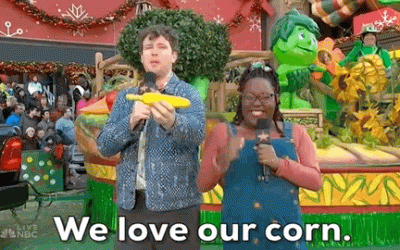ICYMI: One of the largest issues the agricultural industry faces is labor shortages. And those problems have persisted, even as the Covid-19 crisis has subsided.
A bipartisan group of House representatives are trying to address the issue by focusing on the H-2A program.
A final report released by the House’s Agriculture Labor Working Group (ALWG) outlined recommendations to relieve labor shortages. A few of the suggestions include:
- Streamlining recruitment efforts of H-2A employees
- Expanding H-2A programs beyond seasonal employment
- Standardizing employee compensation
The report also provides recommendations for expanding worker protections for H-2A employees.
Quick stats: Recent data showed that base wages for H-2A employees increased almost 41% from 2018 to 2024. Growth in ag wage rates are about 60% more than the growth in the overall U.S. index.
Soundbite: “We are losing farms in America at a rapid pace, and there is no question that our broken workforce system is partly to blame. This report makes it clear, once again, that there is bipartisan agreement on the need to improve the H-2A program to better serve America’s agriculture sector. This working group of the House Agriculture Committee spent months studying and discussing this issue and now delivers important bipartisan solutions for America’s struggling agricultural labor force.” — American Farm Bureau Federation President Zippy Duvall
Where this goes: While the report offers baseline recommendations, farmers and agribusiness still await legislative action that addresses labor protections and affordability.
ease pathogens, reduce byproducts, or impact gut microbiome. The FDA’s existing Food Additive Petition process would regulate these substances.
At the end of the day, this could give farmers more tools to feed their herds, while also making the additive approval process more efficient and consistent.
Soundbite: “This legislation would provide food manufacturers with a pathway to make truthful, non-misleading production, environmental, and well-being claims for animal foods that have been substantiated to provide such benefits more efficiently.” — David Fairfield, Senior VP of Feed at the National Grain and Feed Association
Late last week, the FDA Center for Veterinary Medicine revoked a 25-year-old policy that made it more difficult for animal food ingredient manufacturers to invest in the U.S. because of the slow regulatory process. Now, feed additives can be reviewed through the appropriate ingredient review process, not the CVM’s animal drug review rules.
However, for these changes to the regulatory review process to be codified, it will take a vote from Congress on the Innovative FEED Act.
Short Corn Packs a Punch
Dynamite comes in small packages—which can be true with new seed technology. What’s...
Congress to EPA: What’s Your BEEF with Meat Packers?
The Environmental Protection Agency (EPA) is considering new regulations that take aim at meat and poultry processors.
And some members of Congress have a BEEF with the EPA’s proposals.
The proposed rules: In late January, the EPA released the details of its proposed “Clean Water Effluent Limitations Guidelines and Standards for the Meat and Poultry Products Point source category.”
Huh?
Basically, the EPA formally published its proposals to combat wastewater contaminants that come from slaughterhouses.
Okay… that makes more sense.
At the heart of the rules proposal is a concern from environmental groups about nitrogen and phosphorus pollutants that originate from slaughterhouses. In some cases, the wastewater goes directly into waterways. In other cases, the water goes to municipal wastewater treatment facilities.
But not everyone is on board with the EPA’s suggestions…
Congress responds: Last week, two U.S. representatives—Eric Burlison (MO) and Ron Estes (KS)—pushed back against the EPA and introduced the “Banning EPA’s Encroachment of Facilities (BEEF) Act.” If passed and signed by President Biden, the law would prohibit the EPA from finalizing, implementing, or enforcing the rule.
According to the lawmakers, the proposed rules place undue burden on small processors—costs that can be absorbed by larger companies.
Soundbite: “The… proposed regulation isn’t just an attack on family-run small businesses, it’s an attack on rural communities,” said Burlison. “These meat and poultry processors are the lifeblood of our communities. The BEEF Act… lets these hardworking Americans do what they do best, produce safe, affordable food for our families.”
University of Illinois Makes Big Mooves in Milk Production
Pump it up: Scientists led by Matt Wheeler at the University of Illinois Urbana-Champaign are...




